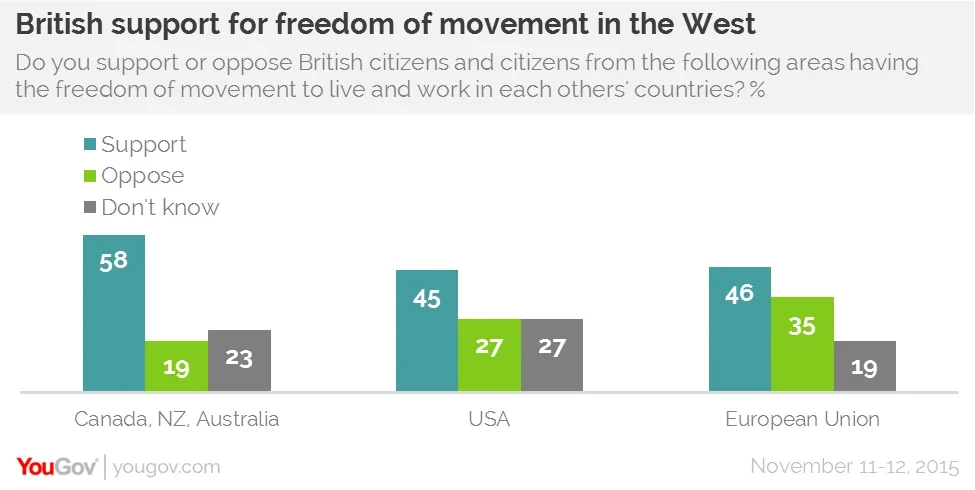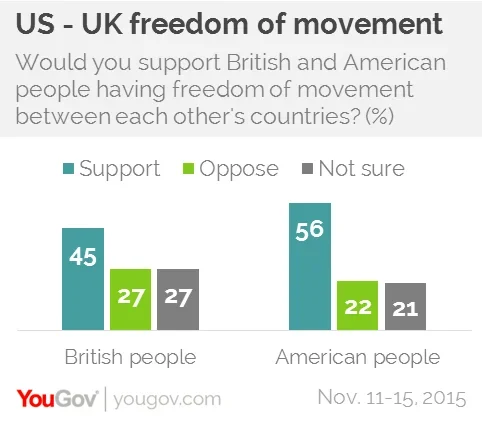Most British people support Britain, Canada, New Zealand and Australia having freedom of movement between each other’s countries
With New Zealand starting the process of deciding whether to the keep the Union Jack in the corner of its flag, and Australia abandoning Knights and Dames, it may feel like a challenging time for the Commonwealth. But a recent campaign to remove visa restrictions between the UK, Australia and New Zealand is seeking to replace the old image of imperialism with a mutually beneficial focus on cultural connections and the economic advantages of labour mobility. Chosen for their shared language, government and common law legal systems and similar cultural values, freedom of movement between the four nations is the subject of a Commonwealth Exchange report, based on an idea by Boris Johnson, and has achieved the backing of 35,000 people in a petition.
New YouGov research reveals that freedom of movement between the four Commonwealth countries is significantly more popular than the corresponding arrangement with the European Union.

A majority (58%) of British people say that British, Canadian, New Zealand and Australian citizens should enjoy similar freedom of movement rules as currently exist between EU member nations. Only 19% oppose. In contrast, 46% support current EU freedom of movement rules, while 35% oppose.

Freedom of movement between Britain and the US is also less likely to be opposed than between Britain and the EU, although research by YouGov in America finds the idea more popular in the US than in Britain. Most American people (56%) say they would support an international agreement to move and work freely with British people, while support in Britain stands at 45%.
Americans are more likely to support free movement rules with Canada (67%) and Australia (60%), however.
In 2013 Boris Johnson wrote about a ‘disgraceful’ situation where an Australian teacher he’d been in correspondence with had to leave Britain because of difficulties attaining sponsorship. Noting the cultural similarities between British and Australian people when visiting the country, he wrote: “I meet people who watch Top Gear, who have fundamentally the same view of the world, basically the same set of assumptions, the same sense of humour, and… the same language” – reaching a freedom of movement agreement would, he said, “be an assertion that we are no longer thinking of ourselves as little Europeans, run by Brussels, but as a country with a truly global perspective.”
PA image









